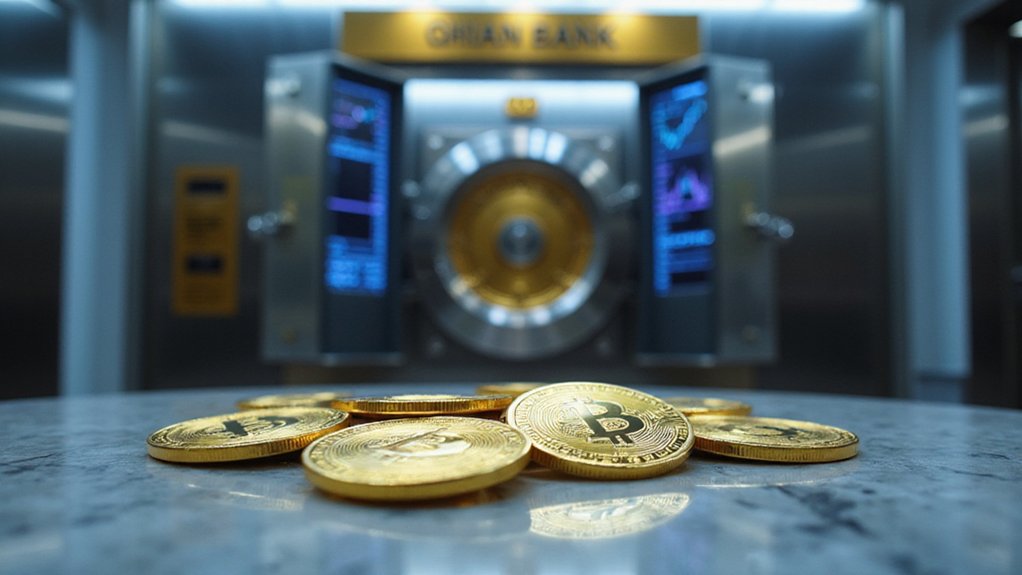After years of treating cryptocurrency like a financial plague to be quarantined from respectable banking, Sparkassen-Finanzgruppe—Germany’s largest banking group with over 50 million customers and €2.5 trillion in managed assets—has announced plans to integrate Bitcoin and cryptocurrency trading directly into its banking app by summer 2026.
Germany’s banking behemoth abandons its decade-long crypto quarantine, embracing the digital assets it once shunned as financial contagion.
This institutional volte-face represents perhaps the most dramatic reversal in corporate crypto policy since JPMorgan’s Jamie Dimon went from calling Bitcoin a “fraud” to offering crypto services to wealthy clients. Sparkassen’s transformation proves particularly striking given the bank’s history of actively blocking customer cryptocurrency transactions since 2015, with internal committees rejecting crypto offerings as recently as 2023 over volatility and speculative concerns.
The catalyst for this remarkable pivot? The European Union’s Markets in Crypto-Assets (MiCA) regulation, which became effective in December and finally provided the regulatory clarity that risk-averse institutions demand before touching digital assets. Sparkassen can now assuredly integrate crypto trading under established compliance frameworks, with DekaBank serving as their securities service provider to guarantee regulatory adherence.
Competitive pressure also played a decisive role. When rival Volksbanken introduced crypto offerings, Sparkassen faced the uncomfortable prospect of watching competitors capture market share in an increasingly important asset class. Growing client demand for digital assets further complicated their resistance—maintaining an anti-crypto stance while customers actively sought such services elsewhere became strategically untenable.
The practical implications for Germany’s crypto landscape cannot be overstated. Sparkassen’s network of over 370 savings banks will fundamentally transform into cryptocurrency gateways, dramatically reducing entry barriers for millions of retail investors.
This infrastructure advantage, combined with the trust factor inherent in traditional banking relationships, positions the group to accelerate mainstream digital asset adoption across Germany.
Notably, Sparkassen plans no advertising blitz for their crypto services—a rejuvenatingly restrained approach that suggests institutional sobriety rather than speculative enthusiasm. Customers will receive thorough risk disclosures, acknowledging crypto’s potential for total loss while providing access to regulated trading capabilities.
This measured embrace of digital assets may establish the template for European banking’s crypto integration: cautious, compliance-heavy, and decidedly unsexy—but ultimately transformative for retail accessibility. The move signals a broader legitimization of cryptocurrencies that began with meme-based currencies like Dogecoin evolving from internet jokes into serious investment options with dedicated communities and ongoing development projects.








